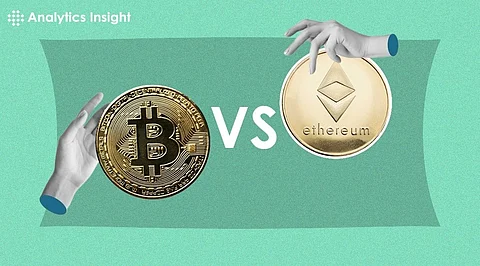
- InsightsInsights
- CryptocurrenciesCryptocurrencies
- Stocks
- White Papers
- IndustryIndustry
- GeographyGeography


The cryptocurrency market has evolved into a diverse landscape, offering a myriad of investment options for enthusiasts and investors. Two prominent choices, Bitcoin (BTC) and Ethereum (ETH), have consistently captured the attention of those looking to enter the crypto space. In this article, we will delve into the comparison of buying 1 Bitcoin vs 16 Ethereum tokens, exploring the factors that investors should consider before making such a decision.
Bitcoin, often referred to as digital gold, is the first and most well-known cryptocurrency. Launched in 2009 by the pseudonymous Satoshi Nakamoto, Bitcoin is recognized for its scarcity, security, and store of value characteristics. It operates on a proof-of-work consensus mechanism, with a capped supply of 21 million coins, making it a deflationary asset.
Ethereum, introduced in 2015 by Vitalik Buterin, goes beyond being a digital currency. It is a decentralized platform that enables the creation of smart contracts and decentralized applications (DApps). Ethereum's native cryptocurrency, Ether (ETH), is used to facilitate transactions and computational services on the network. Ethereum is transitioning to a proof-of-stake consensus mechanism, aiming for scalability and energy efficiency.
As of the latest market data, let's assume the price of 1 Bitcoin is $40,000 (currently, it's trading around $39,873), and 1 Ethereum is priced at $2,500 (currently, hovering above $2,341).
Bitcoin typically has a higher market capitalization than Ethereum due to its longer presence and broader recognition.
Ethereum, with its smart contract capabilities, has been gaining ground and narrowing the market cap gap.
Bitcoin is often considered a digital gold and a store of value.
Ethereum's utility extends to decentralized applications, making it a platform for a variety of blockchain-based projects.
Bitcoin has a capped supply of 21 million coins, enhancing its scarcity.
Ethereum does not have a capped supply, potentially impacting its scarcity narrative.
Ethereum is undergoing a transition to Ethereum 2.0, aiming for improved scalability and energy efficiency.
Bitcoin undergoes upgrades but generally focuses on maintaining its fundamental properties.
Bitcoin, being a more established asset, may exhibit lower volatility compared to Ethereum.
Ethereum's price movements can be influenced by network upgrades, regulatory developments, and the evolving DeFi landscape.
Suited for investors seeking a stable, long-term store of value.
Attracts those who prioritize a lower-risk profile.
Appeals to investors interested in the broader blockchain ecosystem and decentralized applications.
May attract those willing to take on higher volatility for potential growth.
The decision between buying 1 Bitcoin or 16 Ethereum ultimately depends on individual preferences, risk tolerance, and investment goals. Bitcoin remains a stalwart in the crypto space, valued for its store of value characteristics, while Ethereum offers a dynamic ecosystem with smart contract capabilities. Diversification strategies may also be considered to balance exposure to both assets.
Before making any investment, it is crucial for individuals to conduct thorough research, assess their risk appetite, and stay informed about market dynamics. As the cryptocurrency landscape continues to evolve, both Bitcoin and Ethereum play integral roles, each with its unique value proposition in the broader digital asset space.
